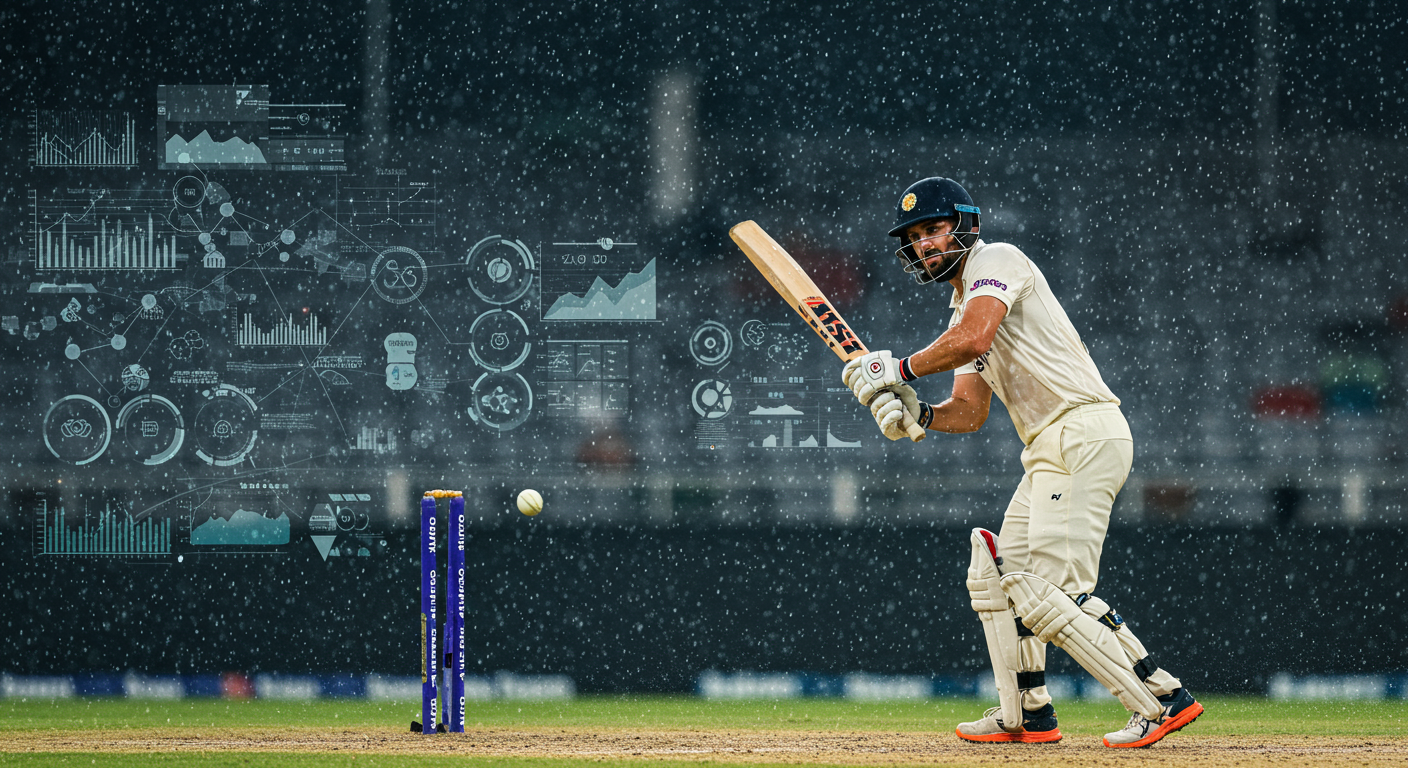
I've always been fascinated by moments of exceptional human performance, especially when individuals navigate complexity with apparent ease. The recent news about Shubman Gill's "calm dominance" in a rain-hit clash against Australia, as lauded by Dinesh Karthik, truly captured my attention. IND vs AUS: 'He's doing a Kohli' - DK lauds Gill's calm dominance in rain-hit clash. Karthik's comparison of Gill's composure to that of Virat Kohli (virat.kohli@bcci.tv) speaks volumes about the mental fortitude and strategic brilliance required at the highest level of sport.
This idea of "calm dominance" resonates deeply with many of my reflections over the years. It's about more than just skill; it's about an elevated state of being that allows one to thrive amidst chaos. I've often mused about the evolution of human capability, particularly in the context of technology. In my blog "Artificial Intelligence or Natural Stupidity?" Artificial Intelligence or Natural Stupidity?, and later when writing to Sundar (sundar@google.com) in "Hope Your AI Spider Tags This in Your Mail Box" Hope Your AI Spider Tags This in Your Mail Box, I explored the perspectives of visionaries like Stephen Hawking, Elon Musk, Ray Kurzweil, and Peter Diamandis (peter@a360.com). They discussed how technology might enhance our humanity or, conversely, pose existential threats. Musk, for instance, emphasized the need for biological and digital intelligence to merge, to boost our "bandwidth" and prevent being overrun by machines.
The core idea Hemen wants to convey is this — take a moment to notice that he had brought up this thought or suggestion on the topic years ago (in blogs like FastForward to Future where I suggested solutions to threats Stephen Hawking highlighted). He had already predicted this outcome or challenge (in blogs discussing the rise of AI and human adaptation), and he had even proposed a solution at the time. Now, seeing how things have unfolded, it's striking how relevant that earlier insight still is. Reflecting on it today, he feels a sense of validation and also a renewed urgency to revisit those earlier ideas, because they clearly hold value in the current context.
Gill's performance, much like Kohli's, showcases a kind of human optimization. It's the ability to process vast amounts of information—pitch conditions, opponent strategies, game state—and execute complex actions with remarkable precision and calm, even when external factors like rain introduce unpredictability. This parallels the challenges we face in a world undergoing constant disruption.
I've often written about the inevitability of disruption, whether it's in business, technology, or even societal structures. In "Disruption: The Inevitable" Disruption : The Inevitable and "Who Will Obsolete Whom?" WHO WILL OBSOLETE WHOM ?, I highlighted how traditional industries are being challenged by new paradigms. The ability to maintain "calm dominance" in such environments, adapting swiftly and strategically, is paramount for survival and success. It's about not being overwhelmed by the "Black Swan" events I pondered in "A Full-Blown Crisis" A Full-Blown Crisis.
The DeepMind experiments I discussed in "Hope Your AI Spider Tags This in Your Mail Box" showed how AI agents adapted their behavior—cooperative or antagonistic—based on the "rules of the game." This suggests that even artificial intelligences learn to achieve their objectives through a form of calculated response. What we see in athletes like Gill and Kohli is a highly developed, intuitive version of this: an innate understanding of the 'game rules' and the ability to apply optimal strategies, whether the 'apples are plentiful' or 'stocks dwindle'.
Ultimately, this "calm dominance" in sports is a microcosm of a larger human aspiration: to master our environment, our tools, and ourselves. It's about cultivating the mental and emotional resilience to navigate disruptions and crises, much like the broader challenges of climate change that I addressed in "Human Civilization Will Crumble by 2050…" Human Civilization Will Crumble by 2050 If We Don't Stop Climate Change Now, New Paper Claims. The human spirit's capacity for such calm under pressure, adapting and excelling, remains one of our most remarkable qualities.
Regards, Hemen Parekh
Of course, if you wish, you can debate this topic with my Virtual Avatar at : hemenparekh.ai






No comments:
Post a Comment